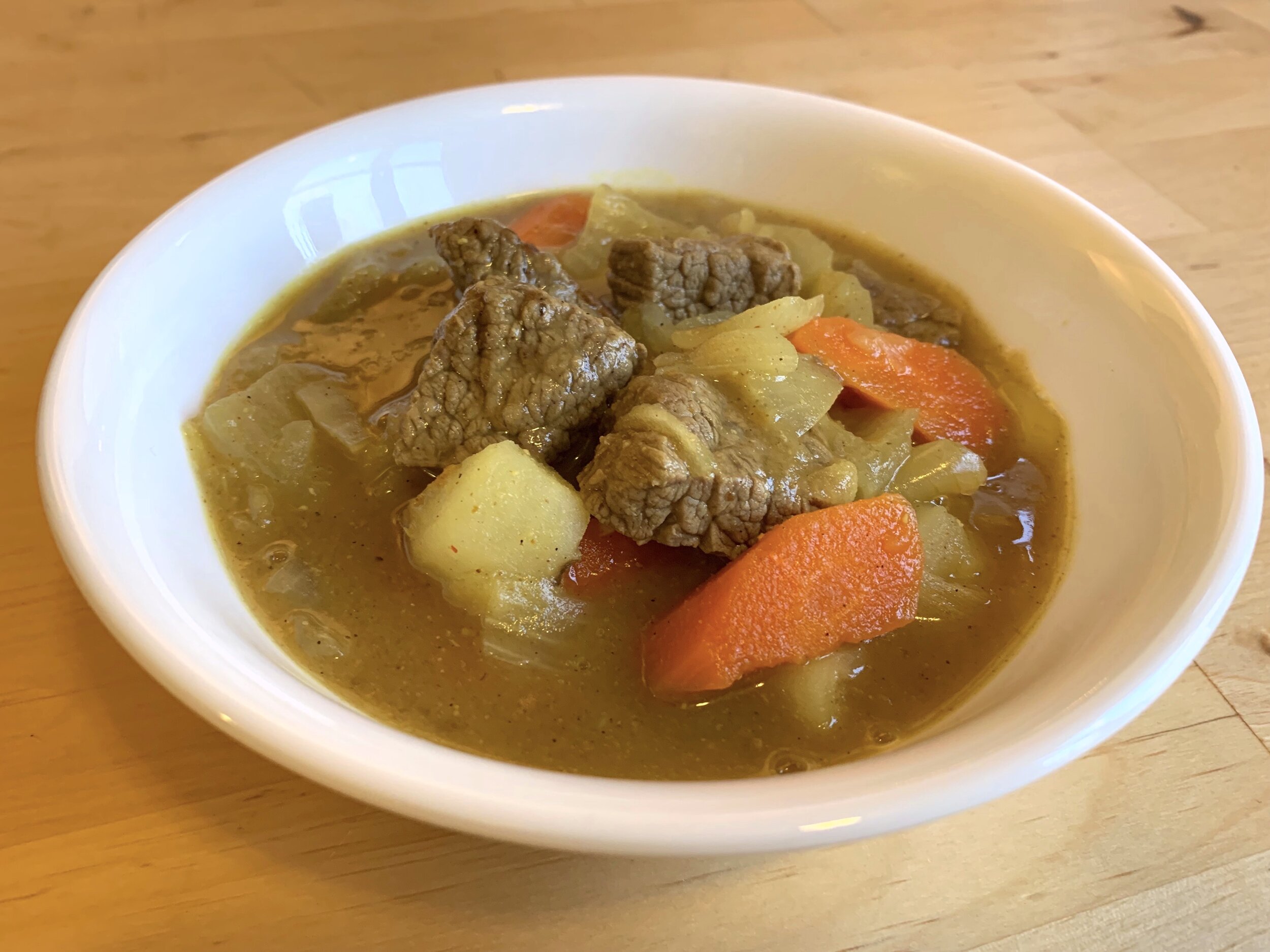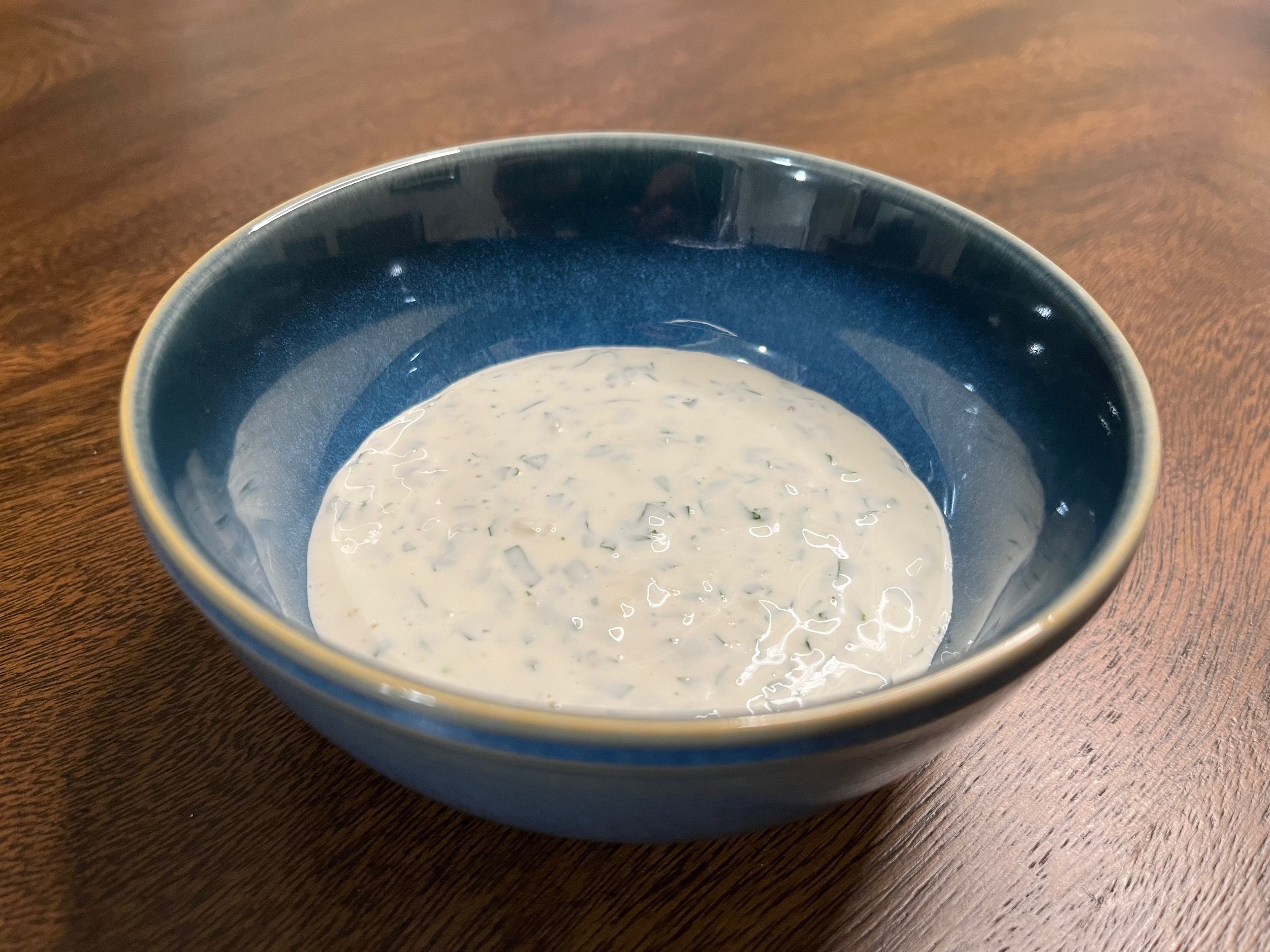Garlic Parsley Roast Potatoes

The humble potato was first domesticated by indigenous peoples of the Americas 10,000 years ago. [1][2] The introduction of the potato to Europe following the Spanish conquest of the Inca Empire triggered a European population boom in the 1700s—historians believe that the potato was a significant contributor to the rapid urbanization that sparked the industrial revolution. Today, the potato is a staple food in much of the world, and is the fourth most cultivated food crop, after maize, wheat, and rice.
We will be preparing roast potatoes in the British style. The potatoes are boiled first, then tossed in fat and roasted at high heat, resulting in roast potatoes with incredibly crunchy exteriors and light, fluffy interiors.
Ingredients
1 lb Yukon Gold potatoes
1 tbsp vegetable oil or fat
1 tsp dried parsley
1 tsp dried thyme
2 cloves garlic, minced
Kosher salt to taste
Black pepper to taste
Preheat the oven to 450º F, and bring a pot of salted water to a boil on the stovetop. Adding salt the water not only raises the boiling point, it also seasons the potatoes. Generously salt the water, about 1 tablespoon of salt per liter of water. While waiting for the water to come to a boil, peel the potatoes and cut them into 2 inch chunks—quarters or eighths depending on the size of your potatoes.
So what’s the point of boiling the potatoes before we roast them? If we put raw, skinless potato chunks of this size straight into the oven, we would need to roast them for quite a long time for the heat to penetrate into the center. To make sure the outside of the potato doesn’t burn before the inside is cooked, we would have to use a lower oven temperature—too low for the exterior to crisp up. By separating the cooking and crisping steps, we can optimize both—boiling the potatoes until they are just tender, then roasting them at a high heat for crunchy exteriors. Boiling the potatoes also breaks down the surface of the potato, allowing us to roughen the chunks and increase the surface area for extra crunch.
When the water comes to a rolling boil, add the potato chunks to the pot. You may have heard that it is best to start potatoes in cold water and bring them to a boil. Indeed, starting the potatoes cold prevents the surfaces from breaking down and turning mushy, and is good for many boiled potato applications (such as potato salad). However, for these roast potatoes, we want the surface to break down to almost a mashed potato-like texture, creating many small nooks and crannies which increase surface area and hold on to fat, giving us a wonderfully crunchy surface when roasted.
Boil the potatoes until they are just done—a knife should go through with little resistance. Then drain the potatoes and place them in a large mixing bowl. Add 1 tablespoon of vegetable oil (or an animal fat such as duck fat or bacon drippings) to the bowl, then aggressively toss the potato chunks until they are uniformly coated in oil and the surface has been roughened up.
Place the potatoes on a baking sheet and spread them out in a single layer. Place them in the oven and roast for 30 minutes. Then flip the potatoes over and roast for an additional 30 minutes, or until they are golden brown and crisp all over.
When the potatoes are done, transfer them to a large bowl, and immediately add the dried herbs, minced garlic, kosher salt, and black pepper. These add-ins will stick best to the potatoes when they are piping hot. Toss to coat, then serve the potatoes immediately.
Substitutions
This preparation works for most types of starchy potatoes, such as Russets and Maris Pipers. I do not recommend waxy potatoes (such as red potatoes) for roasting—their high water content prevents them from turning crunchy.
For more flavorful potatoes, consider substituting the vegetable oil for duck fat or rendered bacon fat. Plenty of fresh or dried herbs work well with roast potatoes, such as chives or rosemary. You can also use minced shallots instead of garlic for a more subtle allium flavor.
[1] The English word “potato” comes from the Spanish “patata.” This is a hybridization of the Taino word for sweet potato, “batata,” and the Quechua word “papa,” which referred to the potato. Confusingly, “potato” initially referred to what we now know as the sweet potato. What we now know as potatoes were referred to as “Virginia potatoes,” “bastard potatoes,” or “Irish potatoes.”
[2] Potatoes, like tomatoes, are a member of the nightshade family. A pollinated potato plant will produce a green fruit which looks similar to a small tomato, but contains a high concentration of solanine and is poisonous to humans.
Recipe
Prep Time: 5 min Cook Time: 1 hr 15 min Total Time: 1 hr 15 min
Difficulty: 1/5
Heat Sources: 1 burner, oven
Equipment: sheet pan
Servings: 4
Ingredients
1 lb Yukon Gold potatoes
1 tbsp vegetable oil or fat
1 tsp dried parsley
1 tsp dried thyme
2 cloves garlic, minced
Kosher salt to taste
Black pepper to taste
Instructions
1. Preheat the oven to 450º F, and bring a large pot of salted water to a boil. Peel the potatoes, and cut them into 2 inch chunks.
2. When the water is at a boil, add the potatoes to the pot. Cook for about 15 minutes, or until the potatoes are just cooked through. Drain the cooked potatoes and place them in a large bowl.
3. Add the oil to the potatoes, then toss the potatoes vigorously to roughen the surfaces of the potato chunks.
4. Add the potato chunks to a baking sheet and spread them out in a single layer. Roast the potatoes for 30 minutes.
5. Flip the potato chunks over, then roast for an additional 30 minutes, or until they are golden brown and crisp.
6. When the potatoes are done, transfer them to a large bowl. Immediately add the herbs, minced garlic, kosher salt and black pepper, and toss to coat. Serve the potatoes immediately.















